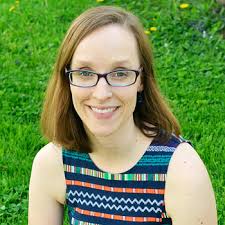“For nothing will be impossible with God.” – Luke 1:37
If I had to describe 2020 in a word, I would choose the word “isolated.” Or, perhaps “distanced.”
Since the middle of March, the daily pulse of the news, and the advice of medical professionals around the world has been that physical togetherness is dangerous. Being distanced from one another has been necessary, and it continues to be necessary even as we navigate the holidays
You would think that after nine months of avoiding crowds and spending time at home, we would be experts in the art of isolation. Yet, for me, the disconnect has grown more difficult, rather than easier to take. As I have spent time reflecting on why this might be, I have wondered if it is because I have associated Christmas with belonging.
For me, the isolation and disconnect have grown more difficult, rather than easier to take.
At Christmas time, belonging is everywhere we look. Songs like “I’ll Be Home for Christmas” reverberate through our speakers, and Hallmark Christmas movies feature character after character moving from loneliness to love. We see people we haven’t seen in months or years, and we gather in worship to hear the story once again of God reaching out to embrace humanity with love through the gift of a vulnerable child in a manger.
This year, as I read the story through the lens of 2020, I can’t help but see the isolation and the exclusion that permeates the journey of Advent. The gift of the Christ child did not begin with belonging, but with separation. In that separation, we discover our own separation, an isolation that is the beginning point of community and love.
Today, we begin with Mary.
In Luke 1, the angel Gabriel appeared to Mary and told her that she would give birth to a son. We hear these words, and our hearts leap within us — much like the child in Elizabeth’s womb at the voice of Mary — but Mary received these words differently. At first, she was confused — how can this be? And then, she received the news with remarkable grace and humility — may it be to me. Yet, in between being perplexed and humble, I am certain she realized how others around her might take to the news.
Joseph would notice as it became evident Mary was pregnant. Would he believe her about the visit from the angel? As soon as Mary’s community noticed the growing reality of the child within her womb, they would speculate and condemn. Embracing the news from the angel also meant embracing the exclusion of her community. This “good news of great joy for all people” would first be a heavy burden to bear. Mary would face Joseph’s disbelief and the community’s shame before the world would receive the open arms of reconciliation and the self-giving of God’s love.
As the angel told Mary that Elizabeth — who was past childbearing years — was expecting a child, he said, “For nothing will be impossible with God.” This world that is translated “impossible” is a Greek word that means “without power” or “without ability.” Mary, who was largely powerless in her society, was in the care of a God from whom no power was excluded. As Mary faced exclusion and shame, God was drawing her into the wider story of belonging and love.
Advent is for the excluded. It is for the marginalized and the lonely. Even as the movies promise us love beyond our imagination and the advertisements seek to fill the voids we are feeling, Advent arrives to remind us that our exclusion is a thread being woven into a story that is beyond ourselves. God does not appear to us as the baby in the manger to take our loneliness away, but to show us God was willing to enter into our loneliness, too.
God does not appear to us as the baby in the manger to take our loneliness away,
but to show us God was willing to enter into our loneliness, too.
The “good news of great joy” is that God is with us in this 2020 year, next to us in our exclusion. God is near to us this year, whether our hearts are bursting with joy or are broken with grief. Christ is with us right now as we begin the lonely journey of Advent, walking step by step, following our lonely thread until we find it connected to the center.
In Mary’s exclusion, may we find our own. And in this strange and isolated season, may we find our way back to God and to each other.
Prayer:
Lord, this year has revealed my lonely places and my feelings of exclusion. Grant me the courage to begin this Advent journey, and remind me of your presence with me along the way. Amen.

